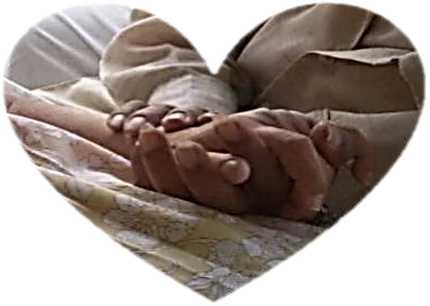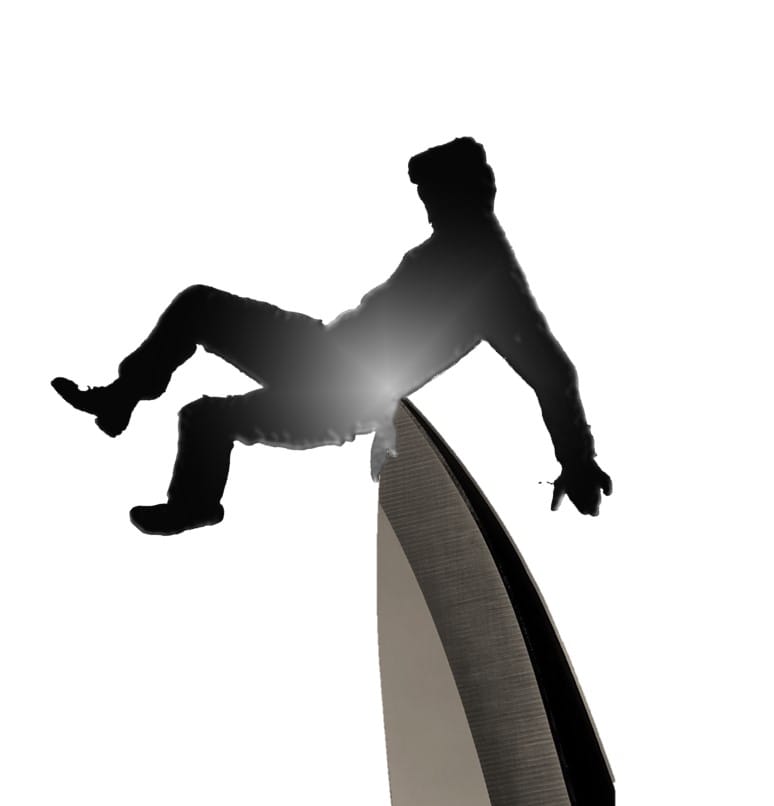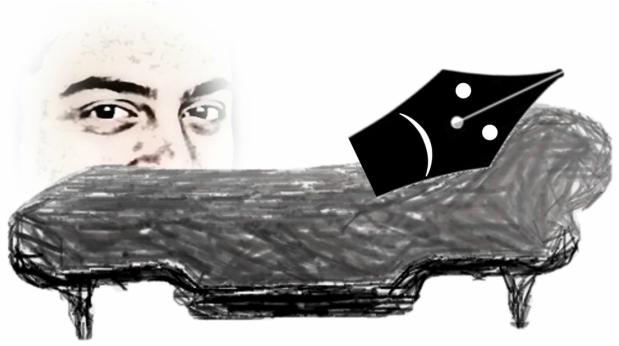|
Good language makes for better communication. Yet, the best communication often needs no language. That’s what I learned from a little girl just beginning to flap her wings and from a couple at the other end of life.
The little story teller She must have been six or seven years of age. I landed in her class close to lunch time. The children were used to visitors and, right on cue, the teacher orchestrated a chorused welcome. The hungrier ones were already moving towards their lunch boxes. The teacher persuaded one of them to repeat the story she had just told them. It came out pat, the mouse and the lion living happily ever after without any error or emotion. This girl was at the back, hand raised, jumping up and down to catch the teacher’s eye, eager to tell the story. I requested the teacher to give that girl a chance before my conducted tour moved on to the next class. “Once upon a time …” the girl began, panting a little after all the jumping. She soon lapsed into her mother tongue. “Speak in English,” came the sharp rebuke. The girl stopped and started again. Again, English deserted her by the second or the third sentence. “But I am speaking in English,” she started crying. Her friends were laughing at her. The teacher was getting angrier. My tour conductor whispered it was time to move on. I knelt before the girl and asked her to tell me the story. She wiped her tears and began. Within moments, everything else vanished. There were just the two of us. I saw the terror the mouse felt in those round eyes. The almighty roar of the lion emerged from that little mouth. Her hands captured the cowering plea of the mouse. And I felt the anger and frustration of the lion when her entire body fought the net. Then the finale, the triumph of friendship. The sudden silence brought me back to the class. I didn’t hear what the teacher was saying. I didn’t hear the giggles around me. I just applauded her. Did she speak in English? I had no idea. She had just brought the story alive for me. Language did not matter. As we walked out of the class room a little tug on my trousers stopped me. She stood there, offering me a biscuit from her lunch box and a wide smile. They held hands At the palliative care centre, there were several instances of love and perseverance winning over excruciating pain and crushing misery. Some I witnessed; many the team would share with me. “I don’t know what you are going to write about this case,” the social worker said. “They just sit and hold hands.” The husband would come from work every evening. The nurses would have wheeled her bed out of the ward and closer to the garden by the time he arrived. She was too weak to get up. He would sit next to her and hold her hands. During those hours, they were oblivious to whatever happened around them. It was a moving sight. But the social worker was understandably sceptical. Indeed, what was I going to write? That they held hands? That’s exactly what I wrote. He knew she didn’t have much time Maybe she did too That didn’t matter This was out of their hands The sun played hide and seek With the leaves and the flowers And people flowed around them That didn’t matter At times they spoke Most times they didn’t That didn’t matter They yet had each other To love, to care for That was in their hands That was all that mattered So they held hands, always
4 Comments
I need your help. Not for myself but for a friend. No, he does not need money. But he is desperate. Let me jump to the email he sent me recently. Email from the edge You know that I took up working for this NGO because I thought the opportunity was too good. I deeply cared for their cause and I had had enough of the corporate rat race. Within a week of joining, I became as passionate about the cause as the dynamic boss of the NGO, if not more. I was happy to write about the good work the NGO was doing. I filled page after page online and offline. I don’t know when things changed. Now, it is about doing only the work that would fill the pages and snag the bytes. You must be seeing enough of my boss in the news. He is well past his corporate sunset. And he enjoys being benevolent, dictatorially speaking. He manipulates every communication to project that all is well, because he is in charge. When a poor beneficiary’s personal life and miserable existence make for great copy and gives the boss a good photo op, who cares for right to privacy? Funders are happy because they get to share the limelight and save tax. Nobody wants to ask uncomfortable questions. Meetings are occasions to let others know what the boss wants, how he wants it and when. You are intelligent and have an opinion or two? Ha! You are a member of the team if you toe the line. Deviate and your photos get yanked off publications and even the archives. History gets rewritten minus your contribution. Good guys join in passion and leave in frustration. Those who remain have regressed into monkeys, craving for punishment and peanuts. You cannot imagine the pressure. I feel like a helpless accomplice, a partner in crime. I am on the edge. What should I do? Walk away and abandon the cause? Or stay, resist and hope for dawn? At my age and after all these years, I can’t think of starting all over again. I keep thinking of Charu. What would you do?
My first instinct was to ignore the email. Let him stop cribbing and figure things out for himself. Maybe he knew that. Is that why, after all these years, he dragged Charu into this? So that I would take him seriously? Now you know why I need your help. They say the corporate world has changed a lot from the time I was an employee decades ago. So, I want to ask all of you readers who know better. You can’t think of a life outside the company or the cause you are serving. And you are dying every moment that you are inside. What would you do? This is very strange, I told my friend. You are a well-known journalist, you teach journalism in at least two colleges and you don’t want your son to take up journalism? And you want me, an ex-and-not-well-known journalist and who lives by writing to give him that advice? Why? Don’t like his writing?
“Don’t be funny! You know he writes very well. You were his mentor once, remember.” I knew I had to be guilty somehow or the other. “Have you seen the plight of journalism today? You should know how good writers are faring.” Ouch! Her son, a fresh MBA graduate, was staying with me the night, purely to save hotel bills and was slated to take off for a trek early the next morning. Given that our sleeping and waking hours had a very narrow overlap zone, I dutifully started my counselling as soon as we were in the car on the way back from the airport. I had no clue what I was in for. “So, how is your writing?” I thought that was a safe, neutral opening. “Oh, fine uncle! Hold on for a sec! My mother has been talking to you, right?” he laughed out loud. “Did she tell you that I should take up writing or I should not? Don’t answer that. I will tell you. She doesn’t want me to become a journalist like her. And she is afraid I would. Right?” I felt like a batsman who was run out even before he could take his guard. Know him; he knows Once we were home, he sat me down. “Uncle, I know your pet prescription to all your students who want to become better writers. Read more, write more. I fully agree with it and I will never forget how you had helped me once. “Maybe, thanks partially to you, I love to read and I love to write.” Ah! That felt nice. He was just starting, though. “I read and write not to take up writing as a career. I climb mountains. I play the guitar for a rock group. I enjoy cooking. I am a champion swimmer. So, should I become a mountaineer? A chef? A musician? Or a professional sportsperson with all those fat endorsements?” Fortunately, he did not wait for answer and went off to take a shower. I went to the kitchen to fix a quick dinner for both of us. “I have spoken to some of my friends about you, uncle,” he said as I joined him at the dining table. Now, where was this heading? “Told them you are a super coach. You have helped create several good writers.” Was this a compliment? Na! There must be a but coming soon …. “But, that’s ok for regular people.” “By regular, do you mean, older people?” I ventured. “Well, you know, older, working, married and all that.” Such a broad definition of regular! Old medicine; new prescription “For someone like me, you have to change your prescription. Today, guys don’t read. And what they write is WhatsApp, that too when they cannot forward something readymade. “You can’t become a champion swimmer like me if you don’t want to enter the pool, right? So, whoever wants to become a writer must write. So, your advice is spot on. What you are missing out on are the two Es.” Wasn’t I supposed to be the psychologically superior coach? When did I end up on the couch? “Experience. Enjoyment. I keep telling my friends to write about what we experience and what we enjoy. They are so lazy, they just copy-paste what I write. “It is time you added the two words to your prescription. Put Experience right in the middle. And Enjoy last. Read. Experience. Write. Enjoy. By experience, I don’t mean what you have gained or lost over the years.” The rascal deliberately looked at my paunch and my bald head. “By experience, I mean the world around me, beyond me. Which unless I venture, I wouldn’t know. And writing for me is sharing, which is necessary to complete the enjoyment.” When I woke up the next morning, he was gone. There was a note below the cup, which he had used for coffee and left for me to clean. “Thanks, uncle! Keep coaching. I will send my friends to you. Tell mom not to worry. I can take care of myself. And tell her I love her.” I called her up and read the note out to her. Told her she had a very intelligent young man for a son and there was no need to worry. Then I asked her, a little hesitantly, “Do you think I should change my profession? I mean am I a little old—” Her laughter cut me short. “Every time I talk to him, he leaves me with the same effect. It wears off. You are doing fine. Take a shower and read the newspaper. The poorly-written reports of sundry evil acts will make you feel wanted and normal.” I followed her advice. The question came out of the blue. “How do we know that the changes you suggest are the best possible changes?” And the question was dipped in teen scorn.
I could sense the teacher, my facilitator for that workshop, bristling at the questioner’s temerity. I motioned her to remain seated. After all, I was the coach, the expert who had travelled all the way to help the students and teachers of the school write better English. Surely, I could handle this? Some 15 minutes earlier, they had all sauntered in, noticed a stranger with their teacher, deposited their bags and extracted a notebook. While I was being introduced with teacherly gravitas, some 20 pairs of eyes beamed two clear questions at me. “What are you doing here?” “What are we doing here?” It took a while but I managed to get the notebooks closed and the pens put away. The thaw Most of my jokes ended up wriggling on the floor having bashed their heads against a still-standing wall, but a few managed to loosen some bricks and reveal some smiles. More importantly, I discovered some writers. “That’s a very good question,” I said, although a good answer was nowhere in sight. Then I took the safe route and smashed it right back! “Would any of you like to answer that question?” One hand was already up, much to my relief. It was the quiet poet. “I don’t think there is something like the best in writing,” she declared. “You express what you are feeling or what you want to say. It is your expression. Maybe someone can do it better. Maybe on another day you will do it better if you try again.” “But who is to judge what is best?” a would-be journalist questioned. “You may love what you have written, but the reader may not. Or you may write something that is ordinary and the readers may make it a best seller.” “I think best is relative.” This was from someone who had confessed to loathe “pointless” writing. “You may like it today, hate it tomorrow. Your readers may not appreciate it today; and when you are dead, someone might discover the relevance of your work.” Wow! It was turning out to be some debate. While the teacher helped to keep things civil, I tried to ensure the punches were legal. Somewhere along, I inserted a few words about my role as a coach—understand what they wanted to say and help them put it in a manner that was clear, convincing and interesting to the reader. Probably that little pitch did not survive the heat of the debate. Don't correct, don't read At the end of the session, the teacher summoned the boy who had thrown the tricky question. Was she planning to take him to task? Before she could say anything, I shook his hand and thanked him for initiating a very interesting debate. There was no stopping the teacher. “So, did you get the answer to the question?” It was a hostile question. Thankfully, he did not bite. He looked her in the eye and said, “Yes, ma’am.” The three of us walked out of the class together. The teacher was headed elsewhere and directed the student to walk with me to the room where a group of teachers were waiting for my next session. She made it sound like a punishment. We started walking in silence. “I am writing a novel,” he announced without any preamble. Surprise! But I just nodded by head as I felt there was more coming. “The teachers correct whatever I write. And I must change it, whether I like it or not.” I was surprised at the intensity of his emotion. “The novel is mine. No one will change it. I don’t care if no one reads it.” I jumped at that chance. “I would love to read it. When it is ready and only if you don’t mind. And I can assure you I am not interested in correcting it.” He stopped near a room, my destination. He stood there facing me, running his fingers through the straps of his bag. “You promise?” he asked. “You will not correct?” “I don’t have the time to correct everything I read,” I replied earnestly. Unintentionally, I ended up mocking his serious tone. He smiled bashfully and then asked for my email ID. I gave that and quickly walked into the room. The waiting teachers must have wondered what this guy was grinning about. They didn’t know that I had just uncovered a stone and I had a strong feeling it would turn out to be precious. |
AuthorVijayakumar Kotteri Categories
All
Archives
July 2024
|





 RSS Feed
RSS Feed

